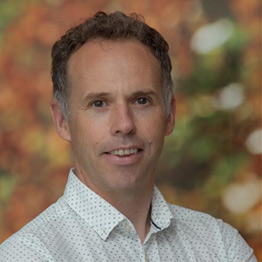01/12/2023
Published in
The Conversation Spain
Javier Bernácer
researcher in the group Mind-Brain, Institute for Culture and Society (ICS), University of Navarra
 What does science say about the psychological effects of caring for a person with a disability? Intuitively, a transformation is to be expected, but in what sense? The scientific evidence is overwhelmingOr is this not always the case? Could this "scientific evidence" be biased?
What does science say about the psychological effects of caring for a person with a disability? Intuitively, a transformation is to be expected, but in what sense? The scientific evidence is overwhelmingOr is this not always the case? Could this "scientific evidence" be biased?
The scientific method requires the development of a hypothesis to be tested - or refuted - by the evidence that is found. Therefore, the results depend on that hypothesis. If you are looking for the level of stress and the feeling of burden, let's say, in parents who have to become position of a child with a high disability, you will certainly find it, especially if you only ask them about it. Just add to the battery of questions, for example, some questions about the development of strategies to overcome these negative situations, and you will find another subject of answers.
Numerous studies have found evidence of increased growth staff in caring for a child with a disability. In a qualitativeresearch examining over the course of a year the life experience of 33 parents in caring for a child with such characteristics, they describe the growth staff as the development of strategies for coping with grief and anxiety; in fact, both decrease over the course of the year and become intermittent phenomena.
Another study sample the experience of grandparents who have a grandchild with an intellectual disability, compared to grandparents of children who do not. Interestingly, a greater experience of negative emotions is found in the latter. The sample is not small, as it includes about a hundred grandparents for every group.
If the search for programs of study focuses exclusively on the positive effects of having a child with a disability, we find the study by Tim Stainton and Hilde Besser. It highlights eight areas in which parents of children with an intellectual disability feel privileged. First, they see their status as a source of happiness, seeing how their children are able to do things that at first seemed impossible.
In addition, they highlight a greater sense of purpose and a better definition of life priorities. As noted in one of the interviews, "it simplifies life, you know, the basics: love, want and be there (...) The important thing is to take care of people or be sensitive to others."
A source of growth staff
The interviewees also underline an increase in personal or social networks, spirituality and family unity: in the face of status, the whole family comes together to deal with the difficulties that arise. The sixth point involves an increase in tolerance and understanding of others, not only in relation to disability, but to differences between human beings in general.
In penultimate place, the status is seen as a source of growth staff and strength, emphasizing perseverance and greater preparation than other families for when challenges arise: "you have made us break down walls", said some parents to their daughter. Finally, the positive impact on other people outside the family is mentioned, because they are surprised to see that children with disabilities are able to do things that other children their age cannot.
The positive effect of caregiving is also seen in other areas. For example, in health professionals who care for children at death's door. One study highlights that the 25 professionals interviewed say that their professional experience in this regard has helped them to change their perspective on life, through greater gratitude, recognition of the strength and resilience of others, and a redefinition of priorities. In addition, they emphasize the development of benevolence: the feeling of having given all they could give for that child and his or her family.
The road to human excellence
It is undeniable that caring for a person with a disability involves increased stress and the perception of carrying a burden on one's shoulders that, at times, becomes unbearable. The healthcare system and relevant public and private associations should increase resources to minimize these negative aspects.
On the other hand, the positive impact that these situations have on the growth of staff and the families that experience them has been demonstrated.
In summary, this growth staff manifests itself as a greater awareness of life's priorities -focused on love for others-, greater resilience and perseverance in the face of difficulties, an increase in gratitude and hope, a greater understanding of diversity and vulnerability, a greater sense of inclusion in the community and, at final, a sense of finding meaning in life. This is no small feat.
Undoubtedly, as a social reality, disability sets human beings on the path to excellence. No wonder philosopher Margaret Archer asserts that caregivers of vulnerable people "may be the only experts on 'being human'".
This article was originally published in The Conversation. Read the original.
![]()
